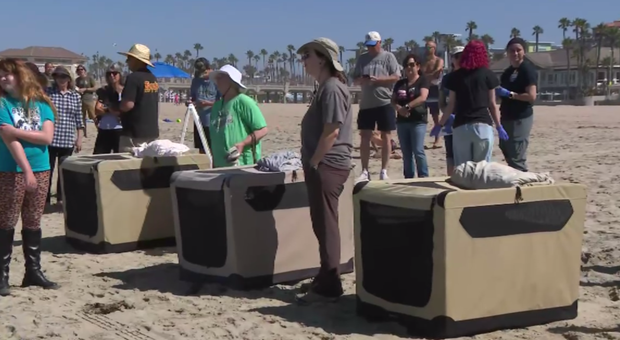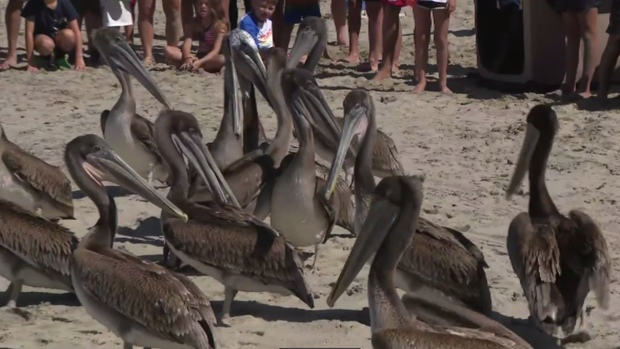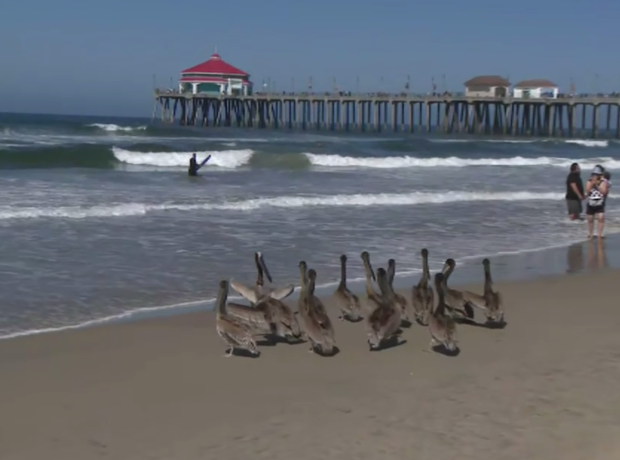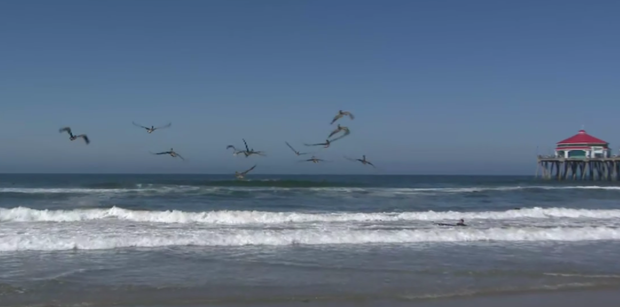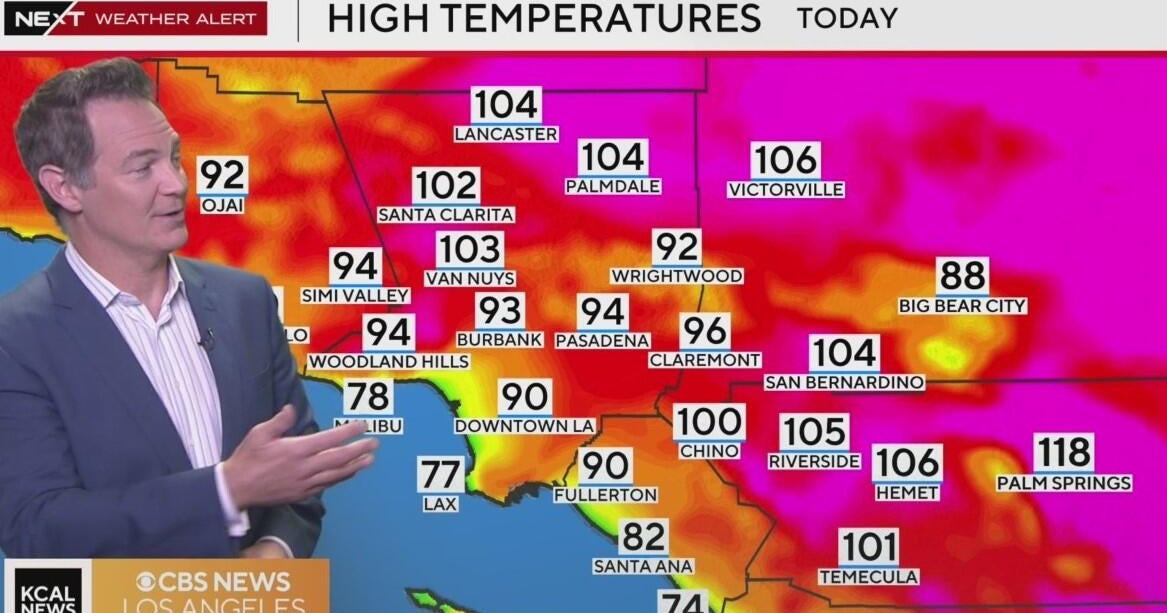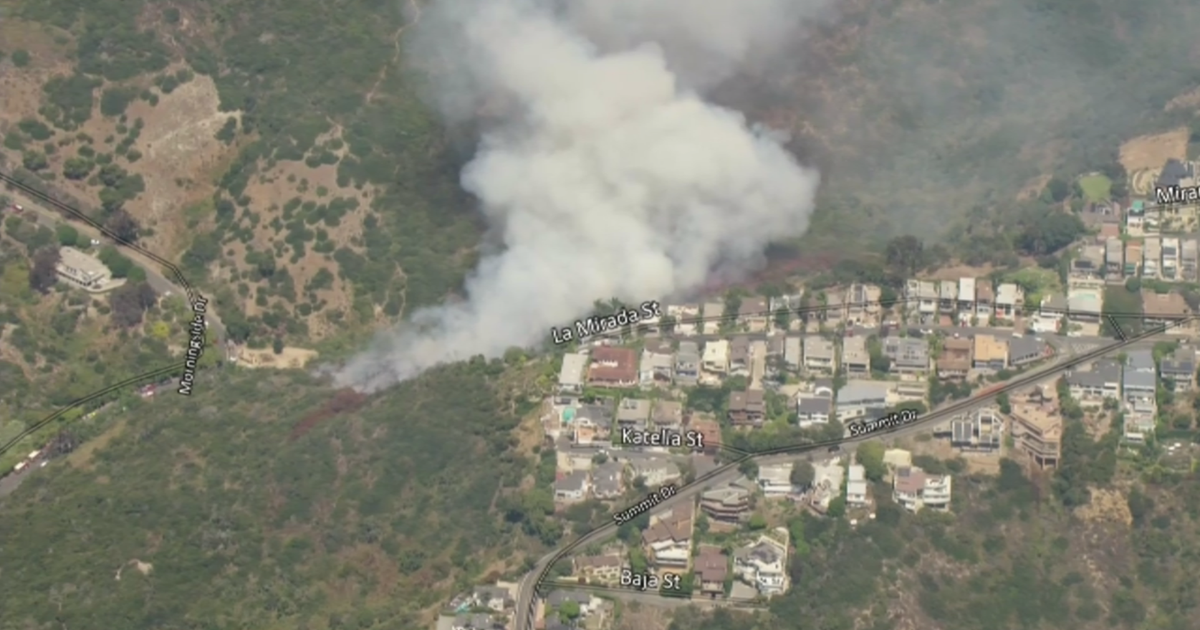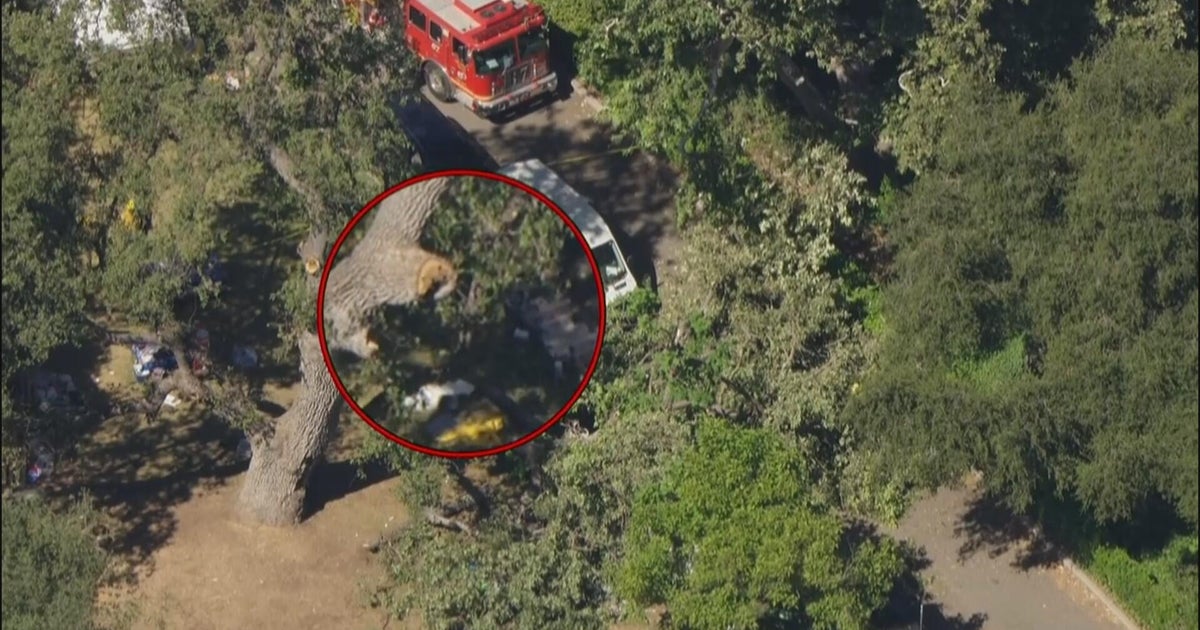Brown pelicans recovered from domoic acid poisoning are released in Huntington Beach
A group of brown pelicans flew back to their Huntington Beach ocean habitat on Wednesday after receiving nearly three months of treatment for domoic acid poisoning.
Animal care staff at the Wetlands and Wildlife Care Center nursed the 13 pelicans back to health as a domoic acid poisoning event sickened marine life along the entire Southern California coastline. A naturally occurring toxic algal bloom, first detected in San Diego in December 2024, intensified in mid-February and moved up the coast, from San Diego to Santa Barbara. By early June, the bloom ended, with marine experts calling it the worst event of its kind in recorded history.
Bird rescue centers and marine mammal care centers were inundated with sick animals as the poisoning increased atypical and even aggressive behavior. Seabirds and marine mammals ingest domoic acid by feeding on the fish that eat the toxic algal bloom.
At the height of the domoic acid poisoning event in April, as WWCC staff rescued a disoriented pelican from inside the John Wayne Airport, they reported that seabirds were "arriving in droves – disoriented, seizing, and emaciated."
They said staff and volunteers are working "around the clock, administering medicine, IV fluids, and hope."
Ocean experts find that harmful algal blooms and their toxins (domoic acid) are becoming more frequent, severe, and long-lasting, especially with warming ocean conditions.
Wildlife experts with the Pacific Marine Mammal Center said this is the fourth consecutive year Southern California has seen a domoic acid outbreak, with this event beginning earlier and remaining more severe than experts have seen before.
In the first five months of this year, the Marine Mammal Care Center Los Angeles responded to more than 550 sea lions and dolphins. The center is budgeted to care for 300 animals in one year. Sea lions, pelicans, dolphins even whales were spotted on Los Angeles and Orange County beaches, dead from domoic acid poisoning. A number of sea lion bites were also reported, as one of the symptoms of poisoning is aggression.
The deaths of two stranded whales in Orange and Los Angeles counties were confirmed to be caused by domoic acid toxicosis.

